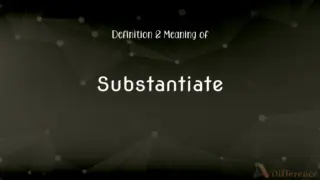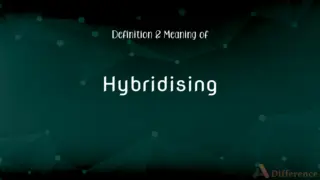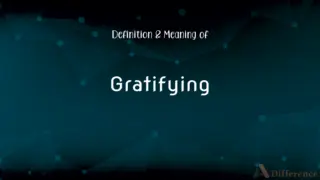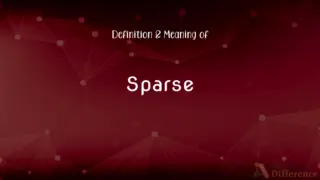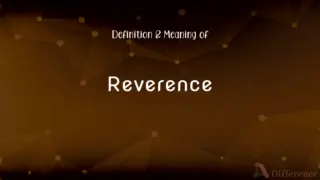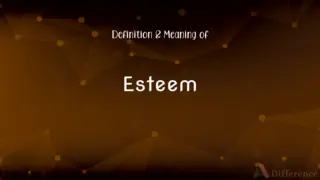Mechanism vs. Principle — What's the Difference?
By Tayyaba Rehman — Updated on December 27, 2023
A mechanism is a system of parts working together in a machine or process, while a principle is a fundamental truth or proposition serving as the foundation for belief or action.
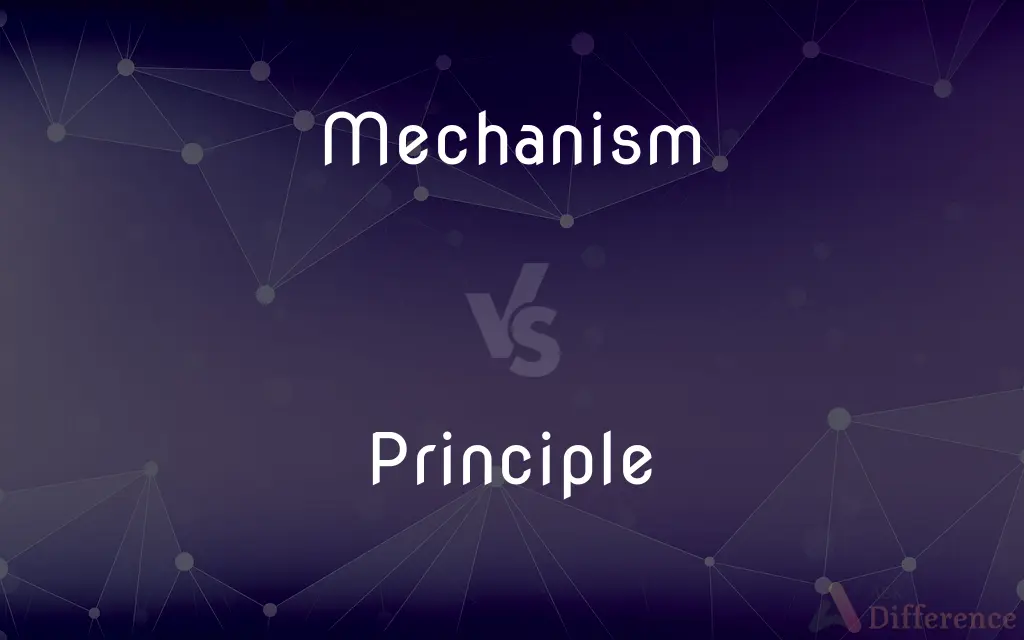
Difference Between Mechanism and Principle
Table of Contents
ADVERTISEMENT
Key Differences
A mechanism refers to the specific arrangement and working of parts in a machine or system, focusing on the technical or physical aspects. In contrast, a principle is a foundational concept or rule that guides beliefs, actions, or the functioning of systems.
Mechanisms are often tangible, observable parts of a machine or process, explaining how something works in a detailed and practical way. Principles, however, are abstract, providing a basis for understanding, decision-making, or reasoning.
In engineering and science, a mechanism is the means by which a machine or system achieves a particular result. Conversely, a principle is a broad, often theoretical guideline or law, such as the principles of physics.
Mechanisms can be seen in everyday objects like clocks or engines, where the interaction of parts leads to a specific function. Principles, on the other hand, are more likely to be seen in the form of guiding theories or doctrines, such as ethical principles.
In biology, a mechanism might refer to the process by which something occurs in the body, like the mechanism of muscle contraction. In contrast, a principle in biology could refer to a foundational theory, like the principle of natural selection.
ADVERTISEMENT
Comparison Chart
Nature
Physical or technical arrangement of parts.
Fundamental truth or theory.
Focus
How something works in detail.
Guiding rule or standard.
Context
Often used in engineering, biology, mechanics.
Found in various fields like ethics, physics, law.
Tangibility
Generally tangible and observable.
Abstract and conceptual.
Function
Executes a specific function or process.
Provides foundational understanding or guidance.
Compare with Definitions
Mechanism
The means by which a process is carried out.
The mechanism of photosynthesis is essential for plants.
Principle
A fundamental truth or proposition.
The principle of equality is central to human rights.
Mechanism
A method or technique for achieving a result.
The car uses a complex mechanism for fuel efficiency.
Principle
A law or rule forming the basis of a system of belief or behavior.
The principles of democracy are upheld by the constitution.
Mechanism
A system of parts working together in a machine.
The clock's mechanism is intricate and precise.
Principle
A guiding sense of the requirements and obligations of right conduct.
Professional ethics are based on the principle of integrity.
Mechanism
The process by which something occurs.
Scientists study the mechanism of muscle growth.
Principle
A rule or belief governing one's personal behavior.
She adheres to the principle of honesty in all her dealings.
Mechanism
The working parts of a device.
The locking mechanism on the door was jammed.
Principle
A basic idea or rule that explains how something works.
The principle of supply and demand affects the economy.
Mechanism
A machine or mechanical appliance.
Principle
A fundamental source or basis of something
The first principle of all things was water
Mechanism
The arrangement of connected parts in a machine.
Principle
A principle is a proposition or value that is a guide for behavior or evaluation. In law, it is a rule that has to be or usually is to be followed.
Mechanism
A system of parts that operate or interact like those of a machine
The mechanism of the solar system.
Principle
A fundamental truth or proposition that serves as the foundation for a system of belief or behaviour or for a chain of reasoning
The basic principles of justice
Mechanism
An instrument or a process, physical or mental, by which something is done or comes into being
"The mechanism of oral learning is largely that of continuous repetition" (T.G.E. Powell).
Principle
A general scientific theorem or law that has numerous special applications across a wide field.
Mechanism
A habitual manner of acting to achieve an end.
Principle
A basic truth, law, or assumption
The principles of democracy.
Mechanism
(Psychology) A usually unconscious mental and emotional pattern that shapes behavior in a given situation or environment
A defense mechanism.
Principle
A rule or standard, especially of good behavior
A man of principle.
Mechanism
The sequence of steps in a chemical reaction.
Principle
The collectivity of moral or ethical standards or judgments
A decision based on principle rather than expediency.
Mechanism
(Philosophy) The doctrine that all natural phenomena are explicable by material causes and mechanical principles.
Principle
A fixed or predetermined policy or mode of action.
Mechanism
(within a machine or machinery) Any mechanical means for the conversion or control of motion, or the transmission or control of power.
Principle
A basic or essential quality or element determining intrinsic nature or characteristic behavior
The principle of self-preservation.
Mechanism
Any combination of cams, gears, links, belts, chains and logical mechanical elements.
Principle
A rule or law concerning the functioning of natural phenomena or mechanical processes
The principle of jet propulsion.
Mechanism
A group of entities, such as objects, that interact together.
Principle
(Chemistry) One of the elements that compose a substance, especially one that gives some special quality or effect.
Mechanism
A mental, physical, or chemical process.
Principle
A basic source. See Usage Note at principal.
Mechanism
Any process of, or system designed to manage useful energy conversion.
Principle
A fundamental assumption or guiding belief.
We need some sort of principles to reason from.
Mechanism
(philosophy) The theory that all natural phenomena can be explained by physical causes.
Principle
A rule used to choose among solutions to a problem.
The principle of least privilege holds that a process should only receive the permissions it needs.
Mechanism
The arrangement or relation of the parts of a machine; the parts of a machine, taken collectively; the arrangement or relation of the parts of anything as adapted to produce an effect; as, the mechanism of a watch; the mechanism of a sewing machine; the mechanism of a seed pod.
Principle
Moral rule or aspect.
I don't doubt your principles.
You are clearly a person of principle.
It's the principle of the thing; I won't do business with someone I can't trust.
Mechanism
The series of causal relations that operate to produce an effect in any system; as, the mechanism of a chemical reaction.
Principle
(physics) A rule or law of nature, or the basic idea on how the laws of nature are applied.
Bernoulli's Principle
The Pauli Exclusion Principle prevents two fermions from occupying the same state.
The principle of the internal combustion engine
Mechanism
Mechanical operation or action.
He acknowledges nothing besides matter and motion; so that all must be performed either by mechanism or accident.
Principle
A fundamental essence, particularly one producing a given quality.
Many believe that life is the result of some vital principle.
Mechanism
An ideal machine; a combination of movable bodies constituting a machine, but considered only with regard to relative movements.
Principle
A source, or origin; that from which anything proceeds; fundamental substance or energy; primordial substance; ultimate element, or cause.
Mechanism
The atomic process that occurs during a chemical reaction;
He determined unique mechanisms for the photochemical reactions
Principle
An original faculty or endowment.
Mechanism
The technical aspects of doing something;
A mechanism of social control
Mechanisms of communication
The mechanics of prose style
Principle
Misspelling of principal
Mechanism
A natural object resembling a machine in structure or function;
The mechanism of the ear
The mechanism of infection
Principle
(obsolete) A beginning.
Mechanism
(philosophy) the philosophical theory that all phenomena can be explained in terms of physical or biological causes
Principle
(transitive) To equip with principles; to establish, or fix, in certain principles; to impress with any tenet or rule of conduct.
Mechanism
Device consisting of a piece of machinery; has moving parts that perform some function
Principle
Beginning; commencement.
Doubting sad end of principle unsound.
Principle
A source, or origin; that from which anything proceeds; fundamental substance or energy; primordial substance; ultimate element, or cause.
The soul of man is an active principle.
Principle
An original faculty or endowment.
Nature in your principles hath set [benignity].
Those active principles whose direct and ultimate object is the communication either of enjoyment or suffering.
Principle
A fundamental truth; a comprehensive law or doctrine, from which others are derived, or on which others are founded; a general truth; an elementary proposition; a maxim; an axiom; a postulate.
Therefore, leaving the principles of the doctrine of Christ, let us go on unto perfection.
A good principle, not rightly understood, may prove as hurtful as a bad.
Principle
A settled rule of action; a governing law of conduct; an opinion or belief which exercises a directing influence on the life and behavior; a rule (usually, a right rule) of conduct consistently directing one's actions; as, a person of no principle.
All kinds of dishonesty destroy our pretenses to an honest principle of mind.
Principle
Any original inherent constituent which characterizes a substance, or gives it its essential properties, and which can usually be separated by analysis; - applied especially to drugs, plant extracts, etc.
Cathartine is the bitter, purgative principle of senna.
Principle
To equip with principles; to establish, or fix, in certain principles; to impress with any tenet, or rule of conduct, good or ill.
Governors should be well principled.
Let an enthusiast be principled that he or his teacher is inspired.
Principle
A basic generalization that is accepted as true and that can be used as a basis for reasoning or conduct;
Their principles of composition characterized all their works
Principle
A rule or standard especially of good behavior;
A man of principle
He will not violate his principles
Principle
A basic truth or law or assumption;
The principles of democracy
Principle
A rule or law concerning a natural phenomenon or the function of a complex system;
The principle of the conservation of mass
The principle of jet propulsion
The right-hand rule for inductive fields
Principle
Rule of personal conduct
Principle
(law) an explanation of the fundamental reasons (especially an explanation of the working of some device in terms of laws of nature);
The rationale for capital punishment
The principles of internal-combustion engines
Common Curiosities
What is a mechanism?
A mechanism is a system of parts that work together in a machine or process.
Can principles be applied in everyday life?
Yes, principles can guide personal behavior and decision-making in everyday life.
What is an ethical principle?
An ethical principle is a rule or standard that guides moral behavior.
Can a principle be a law?
In some contexts, a principle can be a law, especially in sciences like physics.
What is the role of mechanisms in biology?
In biology, mechanisms explain the processes by which biological functions occur.
What is a principle?
A principle is a fundamental truth or rule that serves as a foundation for belief or action.
How do mechanisms function in machines?
Mechanisms function by coordinating various parts to achieve a specific operation in machines.
Are mechanisms always physical?
Mechanisms are usually physical, but the term can also refer to processes in systems like biology or economics.
Do principles change over time?
While principles can evolve, they are generally seen as enduring truths or rules.
Can you give an example of a mechanism in nature?
An example is the mechanism of pollination in plants.
Is a mechanism limited to mechanical devices?
No, mechanisms can refer to processes and systems beyond mechanical devices.
How do mechanisms relate to engineering?
In engineering, mechanisms are crucial for designing and operating machines and systems.
How do mechanisms and principles differ in application?
Mechanisms are applied in practical, operational contexts, while principles guide theoretical understanding and behavior.
Can principles be universal?
Some principles, like those in human rights, are considered universal.
Are principles subjective or objective?
Principles can have subjective interpretations but are often based on objective truths.
Share Your Discovery

Previous Comparison
Editing vs. Edition
Next Comparison
Friendly vs. JovialAuthor Spotlight
Written by
Tayyaba RehmanTayyaba Rehman is a distinguished writer, currently serving as a primary contributor to askdifference.com. As a researcher in semantics and etymology, Tayyaba's passion for the complexity of languages and their distinctions has found a perfect home on the platform. Tayyaba delves into the intricacies of language, distinguishing between commonly confused words and phrases, thereby providing clarity for readers worldwide.








































